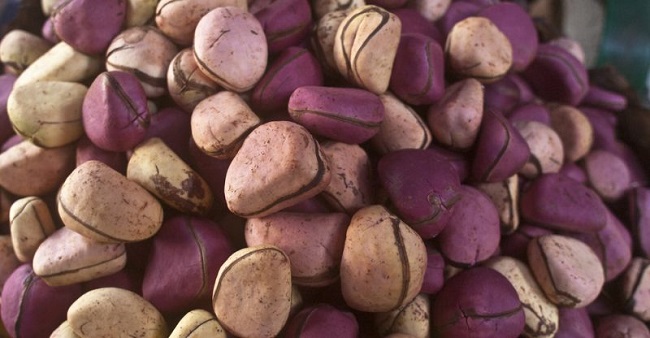When Coca Cola was launched in 1886, its central ingredient was the kola nut. The iconic American company now keeps its recipe a closely guarded secret, but it is thought that artificial flavourings are now used in place of the kola nut. The caffeine-rich fruit, however, is now at the heart of a new story: one of sustainability and ethical production. With coffee production low in Nigeria, it is hoped that the new venture will help farmers through a period of economic unrest.

The Background
Zach En’Wezoh and James Swinyard are graduates from Kamiakin High in Washington. En’Wezoh learned about the cultural significance of the kola nut through a book written about his great great grandfather, who was the chief of a Nigerian tribe. Further research showed En’Wezoh that there were no products currently using the fruit, despite its importance in Nigerian culture. Together with his childhood friend, James Swinyard, he began developing a solution to this: a product that would utilise the fruit in an environmentally friendly and ethical way. The answer was “Bissy”, a kola nut-based energy drink with fair trade and the environment at its heart.
Bissy Is Born
After lengthy research and attempts to develop the product, En’Wezoh and Swinyard eventually partnered with an organisation that oversees approximately 500 farmers of the kola nut: the Cocoa Research Institute of Nigeria (CRIN). The friends had created the mixture for the drink during a night of experimental mixing, and then found a flavour company on the east coast of the US. After six months of trialling different flavour combinations, the final formula for Bissy – a combination of kola nut extract and natural flavourings, including cloves, cinnamon and ginger – was born.
Bissy is the Jamaican name for the kola nut, but the name also speaks to the idea of drinking an energy drink to be busy. Speaking about the branding decision, Swinyard said, “We really want people who are health-focused but also people who like to get creative and who like to be active to consume it.”
Ethical Values
Ethical production and sustainability were at the heart of the project from the beginning. While the developers certainly aim to produce an energy drink that consumers enjoy and will generate a profit, their larger goal is to help Nigerian farmers. En’Wezoh and Swinyard will pay kola nut farmers a premium and set a bottom price, protecting them from potential volatility in the market.
The aim of fair trade is to sustainably reduce poverty. Often applied to the coffee production industry, there is some debate about whether fair trade labelling is doing enough to help farmers, but the Bissy owners aim to make sure farmers are adequately protected. “We mitigate their risk, we pay them more for the product, and then at the end of the year, we take two percent of what we paid them and invest it into a community project,” said Swinyard. By incorporating this value at the heart of the product’s development and maintaining a close relationship with the kola nut farmers, the producers are well placed to have a positive effect on the livelihoods of the growers they support, something that is questioned in the fair trade claims of the coffee industry.
Also, at the heart of the project’s ethos are environmental concerns. The drink will be sold in 3.4-ounce sustainable glass bottles with aluminium caps to make the recycling process as straightforward as possible.
Bissy is currently only available in the US, but the company hopes to expand its reach in the future. In the meantime, it offers hope to Nigerian kola nut growers, who will receive a fair price for their product no matter what happens to the market.
By Cassandra Ally
